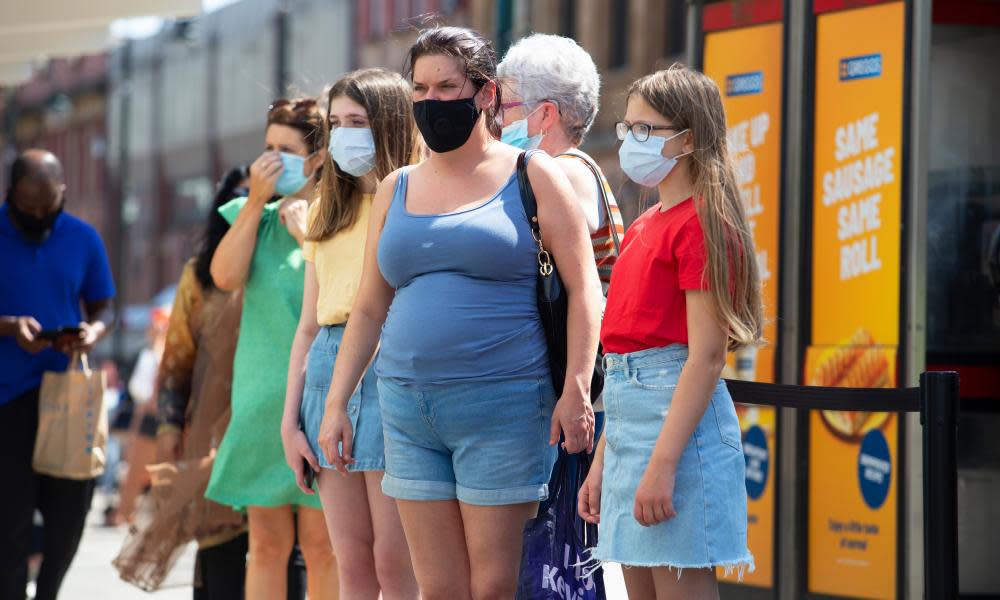Oldham may face full lockdown after Covid cases double

The Greater Manchester town of Oldham is on the brink of being placed into a full lockdown after its number of coronavirus cases nearly doubled despite restrictions on social contact.
Katrina Stephens, director of public health for Oldham council, said officials were discussing with central government the closure of bars, restaurants and gyms in the town following a “sudden increase” in the infection rate.
Oldham now has the highest infection rate in England after the number of new cases nearly doubled from 137 to 255 in the week to 8 August, despite restrictions on movement imposed two weeks ago.
The jump in cases means Oldham’s infection rate is now at 107.5 cases per 100,000 people – almost at the rate of 135 cases per 100,000 in Leicester when it became the first UK city to enter a full local lockdown.
The town, which is about 10 miles north-east of Manchester, also has England’s highest proportion of people who test positive out of the total number of those being tested, at 5%.
Stephens said the numbers were “absolutely something we’re concerned about” and that, having levelled off a fortnight ago following its first spike, there had been a second “sudden increase” in recent days.
She said a full government-ordered lockdown could take place within “days rather than weeks” unless people adhere to the measures including not visiting friends and family.
Stephens said the closure of pubs, restaurants and leisure centres required national powers to enforce and added: “Those discussions are taking place to start preparing for that, should it be needed. However, we are not at that point yet and if people take these actions we really, really hope that will bring down the rate and that won’t be needed.”
The deputy leader of Oldham council, Arooj Shah, said the impact of a local lockdown on the town would be huge. She said it would be much easier to order the closure of hospitality across the wider region because people move across local authority boundaries daily, but added that “right now it’s just an issue for Oldham”.
Shah said the 255 new cases were “in all areas, in all age groups, and in all communities”. The previous spike three weeks ago was concentrated in areas with large multigenerational households, with two-thirds of cases in the town’s Pakistani and Bangladeshi communities.
It appears that the transmission of the virus is now increasing more widely. There has been particular concern about young people carrying the disease unknowingly and spreading it to elderly relatives following social trips to pubs, parks and house parties.
Shah said people were “fatigued, fed up, scared, angry and confused” but reiterated the importance of following the guidance. “We are all at risk of this terrible virus and it is our responsibility to protect ourselves, our friends and wider society by obeying this tougher guidance and acting responsibly.”
Residents in the town have previously been told not to have social visitors beyond those in their support bubble and that clinically vulnerable people would now have to shield until at least 14 August. Care homes in the town have also kept in place strict visiting restrictions.
The Oldham-only restrictions on 28 July were ordered two days before Matt Hancock, the health secretary, placed all of Greater Manchester and large parts of northern England under further measures.


